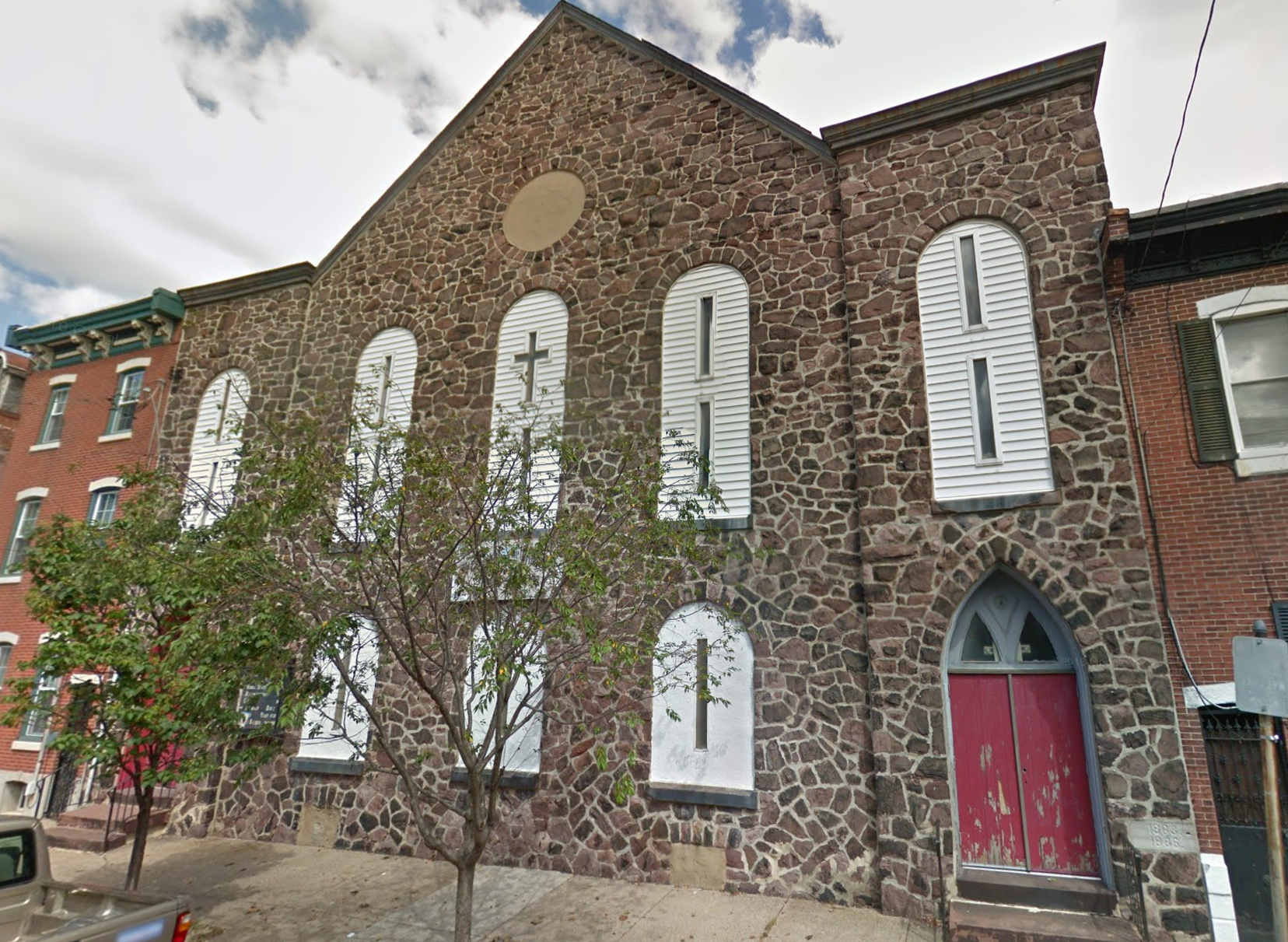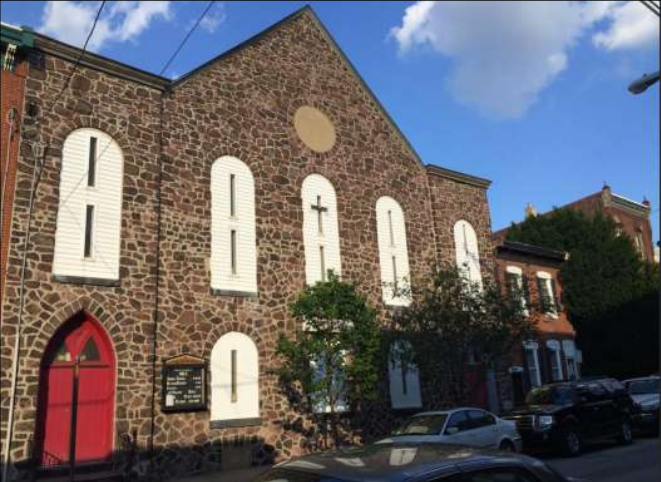Live/work reuse ahead for Fifth Reformed Dutch Church in Fishtown

Historic preservation is a calling that trends towards tragedy. Advocates are often outgunned when it comes to financial resources and political support. Submitting a designation for addition to the local historic register—which would protect against demolition or exterior alteration without approval by the Philadelphia Historical Commission—is no guarantee of success. Even if there’s merit to the case, the commission can decide to shelve the matter because of a technicality, fear of repercussions, or respect for longstanding norms.
Or in the case of the almost 150-year-old Fishtown church at 2345 E Susquehanna Avenue, protection may be withheld because the Historic Designation Committee doesn’t like the framing of an advocate’s argument.
That’s what happened when Oscar Beisert tried to designate the church last autumn. But his efforts were rebuffed because of his focus on figures in congregational history, without full articulation of the architectural merits of the structure. The nomination was tabled, pending revisions by the nominators.

A vestige of the working class German community in 19th century Fishtown, The Fifth Reformed Dutch Church—now the Church of the Living Word—looked as if it would go the way of many such structures in Philadelphia’s hotter real estate markets.
“I nominated this building because like a lot of churches in the area, as soon as they go up for sale, they get demolished and ticky-tacky turd houses would go in there,” said Beisert at a Fishtown Neighbors Association meeting on Tuesday night.
But this fate won’t befall 2345 E Susquehanna Avenue, because of a last-minute intervention by Mike Ski, owner of the graphic design studio True Hand. The artist and Fishtown resident purchased the building and plans to use it as both a home and a studio.
Despite its lack of historic protections, Ski doesn’t envision any serious alterations. The only planned change would be to return windows that have been mostly covered to their original size.
“It’ll be a lot brighter and nicer for the neighbors that way,” said Ski in an interview with PlanPhilly. “And it’ll be easier for us to keep eyes on the street.”
Ski made his case to the Fishtown Neighbors Association on Tuesday night because he needed a couple variances from the Zoning Board of Adjustment (ZBA).
The neighborhood is largely zoned RSA-5, for single family residential, which forbids multiple uses in one structure. True Hand also offers by-appointment tattooing, so Ski is required to get a variance to allow for “body art service” in the space.
Fishtown Neighbors Association is known for its animosity to variances for multi-family housing, which is often what old churches can be adaptively reused for. (See the long-burning controversy over nearby St. Laurentius.) Ski’s lawyer used that to his client’s advantage.
“They [the church] were looking to sell and developers have been looking at this,” said Michael Phillips, the zoning lawyer representing Ski. “I can say that because I have represented developers who have looked at this to turn it into multi-family.”
Then to much cheering from the crowd, he pronounced, “But Mike Ski is not going to turn it into multifamily!”
Ski assured neighbors that four of his three of his employees all lived within blocks of the church, and that the other worker walked to work despite living outside the neighborhood. By slaying the eternal bugbear of neighborhood politics—parking—Ski all but assured his victory.
He also told PlanPhilly that he’d canvassed the block to tell everyone about his plans and offered his soon-to-be neighbors tours of the interior. The current congregation of the church is tiny—eleven people according to testimony at the Historic Designation Committee—so few Fishtown residents are familiar with the interior of the church.
Near neighbors voted 18-to-0 to support Ski’s request for the variances and the larger community voted 70-to-4 in his favor. On Wednesday, the Zoning Board of Adjustment granted his variance requests as well.
For his part, Beisert is very pleased by Ski’s plans. He believes the nomination helped ward off demolition-intent developers.
“Most of Philadelphia’s great neighborhood cornerstones are owned by dwindling non-profits,” says Beisert. “A nomination ensures that the public good is at least considered, putting a temporary hold on demolition. In many cases being faced with the nomination forces them to examine their behavior.”
But Beisert said he’d still like to get the building protected. After all there’s no guarantee the next owner will be so preservation-minded.
WHYY is your source for fact-based, in-depth journalism and information. As a nonprofit organization, we rely on financial support from readers like you. Please give today.




